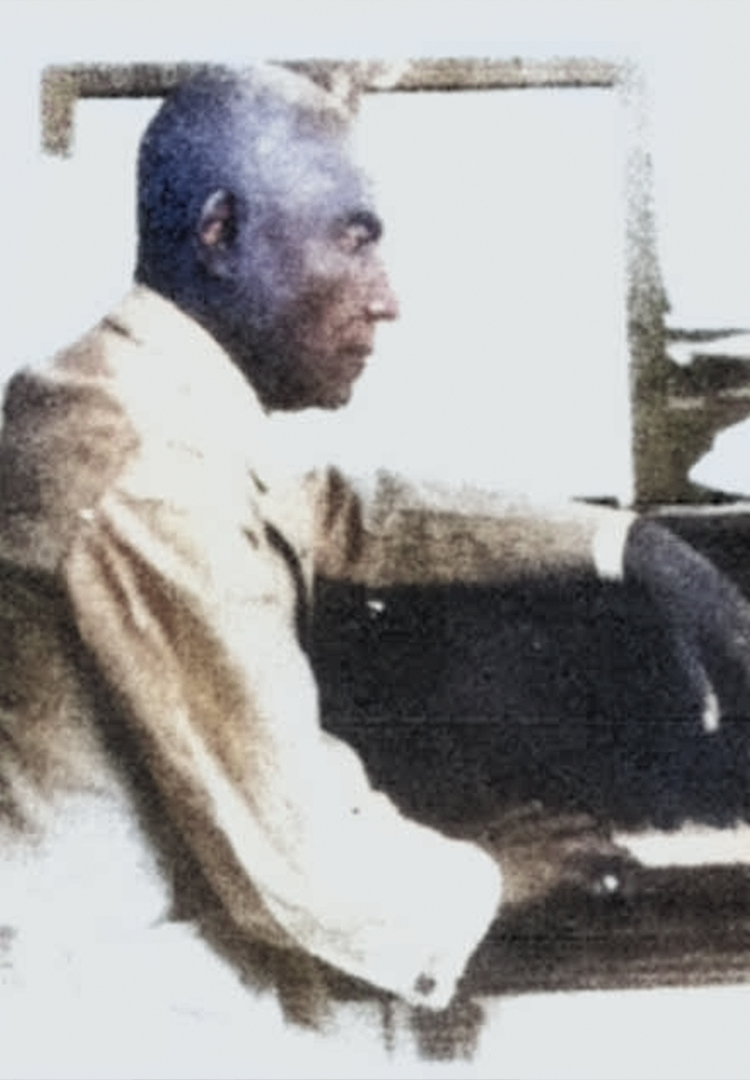
(1882–1953)
Ludovic Lamothe was a pianist and a composer who was dedicated to creating a national music that honored the diaspora of Haitian heritage. He was born on May 22, 1882, in Port-au-Prince, Haiti. He began studying music with his mother, the poet Virginie Sampeur, at an early age. Lamothe went on to study piano, clarinet, and music theory with his teacher Robert Joseph at the Saint Louis de Gonzaga Institution. In 1910, he earned a scholarship for further training at the Paris Conservatory of Music. Lamothe studied with Louis Diémer in Paris for one year before returning to Haiti, where he would spend the remainder of his life incorporating Haitian culture into his music.
In his beloved home country, Lamothe taught piano and played his compositions in Sunday afternoon salons at piano parlors and in the residences of upper- and middle-class Haitian citizens. He combined art music with Haitian elements, such as méringues and danzas, to capture the diverse essence of Haitian culture. His piece La dangereuse is a méringue lente, a slow méringue, that incorporates traditional quintolet dance rhythms. Nibo, on the other hand, is a Carnival méringue, that was meant to inspire dancing and celebration. This particular piece also holds historical significance because it debuted during the Carnival festivities in 1934, and its celebratory atmosphere anticipated the end of the US occupation of Haiti six months later. Lamothe further explored rhythmic elements of Vodou religious ceremonies in his pieces Sobo and Loco in an attempt to reconnect Haiti with its African heritage.
Lamothe remained dedicated to establishing a national aesthetic that celebrated Haiti’s diverse culture. In addition to pursuing this mission through the music, he also published several articles about the subject. Lamothe remained a symbol of Haitian talent and pride until his death on April 4, 1953.

Elizabeth Durrant
Elizabeth Durrant recently received an M.A. in Musicology from the University of North Texas. She also earned a B.A. in English Literature (St. Mary’s College of Maryland) and a B.S. in Voice (Towson University)—as a result she is dedicated to exploring intersections between these disciplines. Her master’s thesis is titled “Chicago Renaissance Women: Black Feminism in the Careers and Songs of Florence Price and Margaret Bonds.” Elizabeth plans to pursue her PhD in musicology and continue exploring her interests in Black and female composers, twentieth-century neoromantic music, and American art song.
Sources
Grenier, Robert and Gage Averill. “Haiti.” Oxford Music Online. Last modified in 2001.
https://doi.org/10.1093/gmo/9781561592630.article.44832.
Largey, Michael. Vodou Nation: Haitian Art Music and Cultural Nationalism. Chicago, Illinois:
The University of Chicago Press, 2006.
———. “Lamothe, Ludovic.” Oxford Music Online. Last modified in 2001.
https://doi.org/10.1093/gmo/9781561592630.article.44715.
Southern, Eileen. Biographical Dictionary of Afro-American and African Musicians. Westport,
Connecticut: Greenwood Press, 1982.




